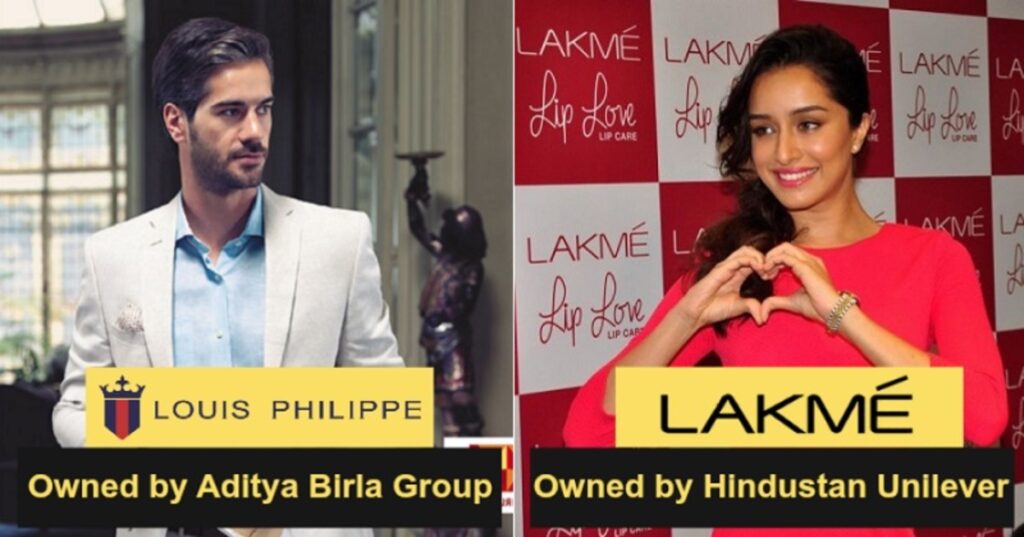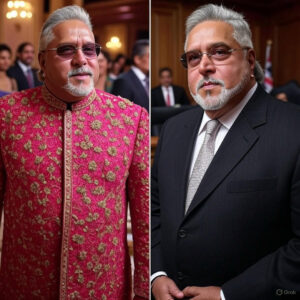Indian brands adopting foreign sounding names, Ever wondered why It’s straight coming out of London or Paris? Well, there are a few clever reasons behind this!
In an age where digital footprints span the globe and marketplaces have no borders, brand names carry more than just an identity—they are a statement of intent, a whisper of the cultural zeitgeist, and a shout into the vastness of global commerce.

Indian brands, in their quest for international recognition, have adopted foreign-sounding names, a reflection of the interconnected world we live in. This strategic choice is not just about sounding chic; it’s about resonating with a global audience in the digital age where a name can travel faster than the speed of light across the internet, breaking barriers and making a mark in the collective consciousness of consumers worldwide.
Table of Contents
ToggleThe Global Appeal of Desi Brands
Brands like “Flying Machine” and “Peter England” have mastered the art of the global appeal of desi brands. They blend international allure with local essence, creating a sophisticated image that resonates with consumers seeking a slice of the global pie. It’s a strategic move to appear trendy and cosmopolitan while remaining rooted in Indian culture.
Presumed Superiority for Foreign names
There’s a lingering perception that foreign equates to better quality. Brands like “Monte Carlo” leverage this belief, suggesting European luxury even when the product is made from locally sourced materials. This perception can be a double-edged sword, as it may set unrealistic expectations or lead to a disconnect with the brand’s origin. Basically, people of India have Presumed Superiority for Foreign names.
Youth Connection and Cultural Aspirations
Young consumers, heavily influenced by Western culture, are the target for brands with names like “American Swan.” These names speak the language of style and aspiration, connecting with the youth on a cultural level and embodying their lifestyle choices.
Confusion and Deception
Some Indian companies intentionally choose English names to mislead consumers into believing they are foreign brands, taking advantage of the cultural bias towards international products.
How Product Identity Shapes Brand Naming in India ?
In the vibrant tapestry of Indian commerce, the names of brands often tell a story deeper than marketing—they reflect the essence of the product itself. The phenomenon of Indian brands adopting foreign-sounding names is not merely a quest for global appeal; it’s intricately tied to the product’s identity and the consumer’s perception of its origin.
Aligning Name with Product Origin
Take, for instance, the realm of Indian ethnic wear. Brands like “Manyavar,” with its unmistakably Indian name, resonate deeply with the traditional and cultural aspects of the attire they sell. The name evokes a sense of pride and authenticity in Indian craftsmanship, which is essential for products that are steeped in local heritage.

Conversely, when it comes to western wear, names like “Peter England” or “Monte Carlo” come into play. These names carry with them an air of international fashion, aligning with the general perception that western attire, such as shirts and trousers, often originates from beyond Indian shores. It’s a subtle nod to the style’s western roots, even if the brand is entirely Indian.
Cultural Connotations and Consumer Expectations
The cultural connotations of a name can significantly influence consumer expectations.
For example, Indian sweets like “Gulab Jamun” or “Rasgulla” are often sold under local brand names “Bikanervala” or “Haldiram” , which emphasize their authenticity and traditional value. On the other hand, chocolate manufacturers in India might opt for names like “Choco Delight” or “Belgian Bliss” to suggest a foreign lineage, which is often associated with high-quality chocolate – even if the products are made locally.
The Perception of Quality and Authenticity
This naming strategy also plays into the perception of quality. A brand like “Swiss Temptations” selling chocolates in India might be perceived as offering a product that adheres to the high standards of Swiss confectionery, despite being manufactured in India. It’s a perception game where the name sets the stage for the product’s reception.
Drafting the Narrative
When drafting the narrative around these brands, it’s crucial to highlight the connection between the product and its perceived place of origin. The name becomes a bridge between the consumer’s expectations and the product’s identity. It’s not just about the geographical origins; it’s about embodying the essence of what the product represents.
A Word of Caution
While using a foreign name can be a smart marketing move, it’s important to be honest. Some companies might choose names that mislead you into thinking they’re established international brands. This can damage trust in the long run.
The Final Take
There are many reasons why Indian brands choose foreign-sounding names. It can be about creating a perception of being global, attracting young customers, or simply making the name easier to remember. But the key is to find the right balance – a name that feels international without losing its connection to its Indian roots. After all, there’s nothing stopping a desi brand from becoming truly world-class!
In conclusion, the choice of a foreign or local name by Indian brands is a strategic decision that goes beyond mere aesthetics. It’s a reflection of the product’s identity, the heritage it carries, and the expectations it sets. Whether it’s the traditional allure of “Manyavar” or the international chic of “Peter England,” the names are a testament to the diverse and dynamic nature of Indian branding, where every name tells a story, and every product finds its voice.

Jugaad on Two Wheels: The Hilarious Bike Parcel Hack in Karnataka
The Great Karnataka Bike Parcel Hack: A Jugaad Masterclass #RapidoParcel: In a creative yet controversial move, ride-hailing platform Rapido has found a way around Karnataka’s

Denmark’s Digital Sovereignty Revolution: Linux and LibreOffice Lead the Way
Introduction to Denmark’s Bold Move In June 2025, Denmark’s Ministry of Digital Affairs made headlines by embracing digital sovereignty, ditching Microsoft Windows and Office 365

🏏Sports as a Business Strategy: Insights from Vijay Mallya’s RCB Ownership
🧠 Sports as a Business Strategy (Tool) In modern business, few platforms offer better engagement and emotional connection than sports. From football clubs in Europe

🙏 Apologies in Leadership: Vijay Mallya Public Apology
🧠 Introduction: The Role of Apologies in Leadership In the corporate world, apologies aren’t signs of weakness—they’re strategic acts of leadership. When made with sincerity

Audiobook Production Costs: Navigating Recording Artists, Studio Expenses, and AI’s Impact
The audiobook industry is booming, with over 130 million listeners in the U.S. alone in 2021 and a growing global appetite for audio content. Producing

Media Trial of Vijay Mallya: How Public Perception Shaped Vijay Mallya’s Legacy
Introduction: Media’s Influence on Business Narratives In today’s hyper-connected world, media narratives can make or break a business reputation. For Vijay Mallya, once known as


3 thoughts on “Desi Brands with Videshi Names | Why Indian brands adopting foreign sounding names ?”